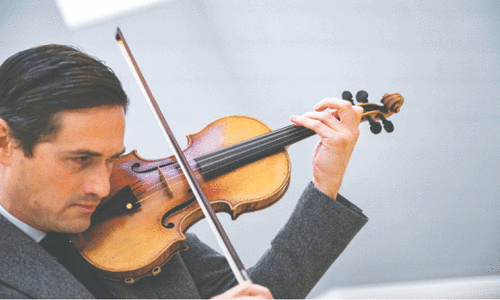
It is not easy for us to honestly assess our actions. We are inclined to shield our egos and get immense satisfaction by blaming others. This does not mean that we really mean to react that way. Many a times, the circumstances are difficult and we end up making a mistake.
Some mistakes might be small but others can be big, having an adverse impact either on us or others. Some may be the result of circumstances but others might be due to our ignorance. Suppose your mum asked you to do a certain chore after returning from school but a surprise extra class in the school made you tired because of which you can’t accomplish the chore or maybe you forgot about it.
This is something situational, but in other cases there might be something which you consider a unique aspect of your personality, which in reality is your weakness. You get away by saying ’I am like this always’, but offering justifications for something which has become a part of your personality and which adversely affects yourself or others, is wrong. One such example is the habit of putting off your school assignment till the eleventh hour whenever an assignment is due.
Accepting constructive or productive criticism about our mistakes has many advantages. The more we justify ourselves, the more inclined we are to repeat the mistake. Owning our mistake is actually taking responsibility of our lives. If we don’t, life will seem like something happening to us instead of us being in charge of it.
Thomas Carlyle said, “The greatest of faults, I should say, is to be conscious of none.”
People who have very high self-esteem and need praise all the time are in fact narcissists, they feel they have special talents and deserve admiration at all times. As realistic people, we should not get offended when friends and peers help us see our faults and offer criticism, which ultimately helps us improve ourselves. It is also wise to assess our actions in different situations and listen to our conscience whenever someone has a complaint against us.
Some of the steps that will make you more responsible and help you accept your mistakes are given below.
Making mistakes is not stupid!
You should stop thinking that making mistakes is wrong or stupid. We all make minor or major mistakes in our life. They are inevitable and hence not stupid.
We think that by apologising, we will become insignificant to the other person and loose our respect. But in fact the opposite is true as we gain others respect by apologising and showing humility.
We must do as Tavris and Aronson (social psychologists) say, “Learn to see mistakes not as terrible personal failings to be denied or justified, but as inevitable aspects of life, that help us grow and grow up.”
Nip it in the bud
Before a small mistake becomes a bigger one and you are inclined to take wrong decisions because of that, it should be nipped in the bud. Accept your mistake without wasting time by apologising or accepting it, and never repeating that mistake again.
Improve your problem-solving skills
When you believe that you are in charge of your attitude and have confidence in your actions, then you can minimise the chances of making mistakes. It is very easy to blame others or the situation, but when you resolve to work with greater confidence you can also win the confidence and appreciation of others.
As you grow up, you will be faced with greater and complex problems and will need problem solving skills to cope with life’s challenges.
Put yourself in other’s shoes
It is possible that your actions have put others in trouble. You should rationally assess your actions and give attention to the concerns of others. What you think as trivial might not be that trivial for the other person who is facing the consequences of your mistake. When you have empathy you don’t adopt a careless or casual attitude towards others. You have genuine desire to help them and you focus on their needs.
Listen to your conscience
It is always wise to listen to your conscience. Whenever you make a mistake your conscience will prick you. You should consider what role you played in precipitating the situation or have you handled it poorly? Your intuition as well as your conscience will tell you what to do next.
Employing humility and owning our mistakes are very important. Many people give justifications for making mistakes, but it’s more appropriate to hold ourselves responsible for our actions and words instead of shifting the blame on others.
Published in Dawn, Young World, March 24th, 2018













































Dear visitor, the comments section is undergoing an overhaul and will return soon.